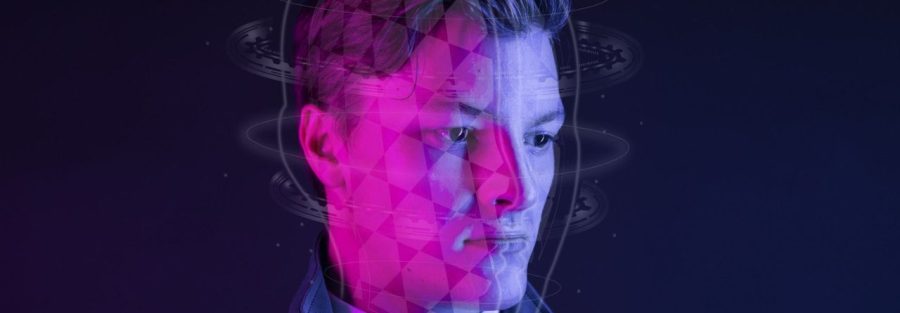Your personality was forged long before you ever stepped into an office. Childhood experiences, cultural background, genetics, early relationships all contributed to the mental software you’re running right now. And that software doesn’t shut off when you clock in.
The kid who needed everything organized in their backpack probably became the adult who color-codes spreadsheets. The teenager who thrived in debate club might be the one pushing back in every meeting. The person who grew up in a household where emotions were discussed openly handles conflict differently than someone who learned early that feelings were private.
But here’s what most organizations miss: these aren’t just quirks or working styles. They’re the invisible forces driving real business outcomes. The way your finance director handles month-end stress, whether your operations team communicates effectively during a crisis, why some high performers burn out while others keep going it all comes back to personality.
The Big Five: More Than Theory
The Big Five personality traits openness, conscientiousness, extraversion, agreeableness, and neuroticism aren’t just academic concepts. They’re the blueprint for how different minds process pressure, make decisions, and collaborate.
Recent Research Shows:
- Conscientiousness consistently ranks as the strongest predictor of job performance, especially when combined with cognitive ability, together explaining about 20–30% of performance variance.
- Personality fit matters: when employees work in roles aligned with their natural strengths, they show significantly higher engagement and a lower risk of burnout.
- Agreeableness improves collaboration and team outcomes, with one meta-analysis showing positive effects on 93% of interpersonal and well-being outcomes across nearly 2 million participants.
- The Big Five traits explain about one-third of variance in work engagement, with conscientiousness having the strongest individual impact.
Understanding these traits isn’t about psychoanalyzing your coworkers. It’s about building teams that actually work.
Performance Under Pressure
Walk into any corporate finance department during quarter-end, and you’ll see personality in action.
Some people seem to have an extra gear when things get intense. Others freeze up or make mistakes they’d never make on a normal Tuesday.
The highly conscientious controller methodically works through reconciliations, double-checking every entry. Their personality treats pressure as a signal to get more systematic, not less. Meanwhile, the tax manager with high openness to experience quickly adapts when new regulations drop mid-cycle, seeing opportunity where others see disruption.
Your brain either treats pressure as fuel or interference. Neither response is wrong, but understanding which one you’re dealing with changes everything about how you assign responsibilities, set deadlines, and structure work.
When Personalities Collide (or Connect)
Personality conflicts aren’t always loud arguments in conference rooms. More often, they’re quiet misalignments that drain energy and slow progress.
The extraverted sales leader wants to brainstorm solutions in group meetings, while the introverted operations manager needs time to process information before contributing. The sales leader interprets the silence as disengagement. The operations manager feels steamrolled by the rapid-fire discussion.
But here’s what’s interesting: the same differences that create conflict can also create magic. The cautious person keeps the risk-taker from making expensive mistakes. The optimist helps the realist see possibilities. The introvert notices things the extrovert misses in their enthusiasm.
Teams that understand and embrace personality diversity are more innovative, resilient, and productive.
Mental Health Is Not Separate From Personality
Burnout isn’t just about workload. It’s about the interaction between workload and personality.
- People high in neuroticism experience stress more intensely and recover more slowly. A 2023 review across 83 studies found neuroticism to be the strongest personality predictor of burnout.
- Highly conscientious people often set impossibly high standards, struggling to delegate or accept “good enough.” They’re the ones reworking a report that’s already excellent driven not by pressure from above, but by internal compulsion.
And yet, these aren’t weaknesses. They’re wiring patterns. In 2025, emotional intelligence closely tied to personality is shown to account for 58% of job performance across industries. Supporting mental health means understanding how personality traits shape stress responses and recovery.
What Leaders Can Actually Do
Understanding personality isn’t about excusing poor performance or tiptoeing around people’s preferences. It’s about creating conditions where different types of minds can do their best work.
- Match roles to natural strengths Put detail-oriented people in roles that require precision. Give big-picture thinkers responsibilities that need creative problem-solving. Instead of forcing everyone to be well-rounded, create teams where different types of intelligence complement each other.
- Adjust communication style Some people need time to process information before making decisions. Others think out loud and prefer immediate feedback. Build processes that accommodate both styles rather than forcing everyone into one mode.
- Create psychological safety for different personalities Quiet people need permission to contribute in their own way. Highly conscientious people need reassurance that progress is more important than perfection. Emotionally sensitive people need clear expectations and consistent feedback.
- Foster curiosity across personality types Curiosity drives innovation but it manifests differently. Leaders who understand personality can unlock curiosity in both cautious and adventurous minds.
These aren’t expensive interventions or complex systems. They’re small adjustments that recognize people work differently and perform better when you work with their natural tendencies rather than against them.
Final Word: Humans, Not Systems
We live in an age of productivity hacks and AI tools, but the most important variable in any workplace is still the human element. Understanding personality isn’t soft science it’s strategic intelligence.
The leaders who get this right don’t just manage people they orchestrate different types of minds to create something none of them could achieve alone. They understand that diversity of thought isn’t just a nice ideal but a competitive advantage.
Your personality isn’t something to overcome or manage around. It’s the unique way your mind processes the world. And when you understand it in yourself and others everything else becomes possible.
The future belongs to teams that harness the full spectrum of human thinking, not just the loudest voices in the room.





